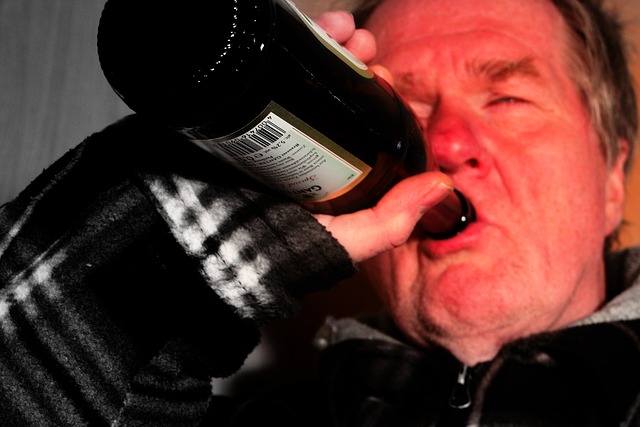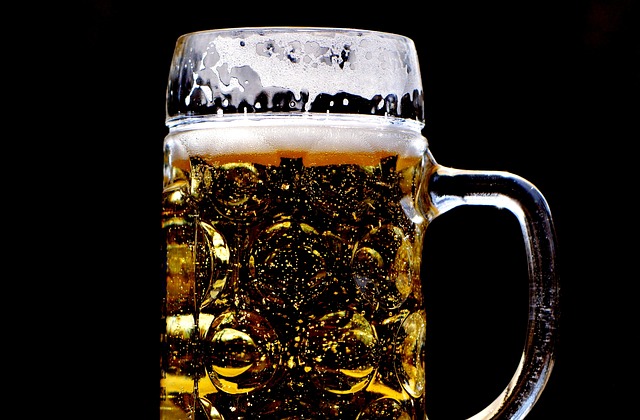Can You Die from Alcohol Withdrawal?
Alcohol withdrawal is a serious condition that can lead to life-threatening complications without proper care. For those living in Orange, California, understanding the symptoms and risks of alcohol withdrawal is crucial, especially if you’re looking to stop drinking or reduce your alcohol intake after a period of dependence. This article will explore the potential dangers of alcohol withdrawal, discuss symptoms, and emphasize the importance of medical supervision.

What Is Alcohol Withdrawal?
Alcohol withdrawal occurs when someone who is physically dependent on alcohol suddenly stops drinking or significantly reduces their alcohol consumption. Over time, frequent alcohol use alters the central nervous system, and when the alcohol intake ceases, the body reacts, leading to a range of withdrawal symptoms. Alcohol withdrawal syndrome (AWS) includes both mild and severe symptoms, which can be dangerous or even fatal if left untreated.
Alcohol dependence, also known as alcohol use disorder, develops gradually as individuals drink heavily over time. This physical dependence creates the potential for withdrawal symptoms once alcohol use stops. Managing these symptoms, especially severe ones, requires medical intervention to prevent dangerous outcomes.
Can You Die from Alcohol Withdrawal?
The answer is yes. It is possible to die from alcohol withdrawal if it becomes severe and is left untreated. Alcohol withdrawal can cause critical complications like seizures, delirium tremens, and severe dehydration, all of which can be fatal without medical care. While mild withdrawal symptoms are manageable, individuals with a history of heavy drinking or severe alcohol use disorder are at a high risk for severe alcohol withdrawal syndrome.
Because of these risks, alcohol withdrawal is considered a medical emergency in some cases, requiring immediate attention to prevent life-threatening outcomes.

Symptoms of Alcohol Withdrawal
Mild Symptoms of Alcohol Withdrawal
Mild symptoms of alcohol withdrawal can begin as early as 6-12 hours after the last drink. These include:
Profuse sweating
Headaches
Nausea and vomiting
Mild anxiety and irritability
While these symptoms are uncomfortable, they typically do not pose a significant threat to health. However, without medical supervision, mild symptoms may escalate into more serious complications.
Acute Alcohol Withdrawal Symptoms
As alcohol withdrawal progresses, acute symptoms can appear, often peaking between 24 and 72 hours after the last drink. These symptoms include:
Increased heart rate
Elevated blood pressure
Tremors or spasmodic muscular contractions
Hallucinations (both visual and auditory)
This phase of withdrawal, known as acute alcohol withdrawal, requires close monitoring to prevent severe complications.

Severe Symptoms and Complications
For those with a high level of alcohol dependence, alcohol withdrawal can escalate into severe symptoms, posing a significant risk to life. Common severe complications include:
Delirium Tremens (DTs): This is a severe form of alcohol withdrawal syndrome that includes symptoms like confusion, agitation, hallucinations, and an intense state of anxiety. Delirium tremens can also cause uncontrollable convulsions, cognitive impairment, and in some cases, death.
Seizures: Alcohol withdrawal seizures, especially tonic-clonic seizures, are a life-threatening symptom. These seizures can lead to spasmodic muscular contractions and, in severe cases, status epilepticus, which is a prolonged seizure state that can be fatal without immediate treatment.
Dehydration and Electrolyte Imbalance: Severe alcohol withdrawal can lead to life-threatening dehydration and an imbalance of electrolytes, which are critical for heart and muscle function.
The Importance of Medical Supervision
Attempting alcohol withdrawal without medical supervision can be highly dangerous, particularly for individuals with a severe alcohol use disorder. Medical professionals can help manage symptoms, prevent complications, and provide medications that ease withdrawal.
In severe cases, inpatient care is recommended, where a dedicated team can monitor your vitals, provide fluids, and manage withdrawal symptoms. Facilities in Orange, California, offer medically supervised detox programs, ensuring that individuals receive the care and support they need during this critical time.
Delirium Tremens and Its Risks
Delirium tremens is a severe manifestation of alcohol withdrawal that can impact the nervous system, leading to confusion, agitation, and hallucinations. DTs usually appear 48 to 72 hours after the last drink and may last several days. If untreated, delirium tremens can lead to high-risk symptoms like uncontrollable convulsions and severe cognitive impairment.
The central nervous system is highly vulnerable during DTs, as the body struggles to regain equilibrium without alcohol. DTs is considered a medical emergency, and treatment typically requires a controlled setting, such as a hospital or specialized detox facility, where proper medical support is available.
Alcohol Withdrawal Seizures
Alcohol withdrawal seizures are among the most dangerous symptoms, especially for those who have experienced past withdrawals. These seizures are often generalized convulsions that cause the entire body to seize, creating the potential for injuries or life-threatening complications like status epilepticus. Immediate medical attention is crucial, as seizures can worsen or become uncontrollable in the absence of medical supervision.

Treatment Options and Medical Care in Orange, California
For those facing alcohol withdrawal, alcohol detox under medical supervision is the safest approach. In Orange, California, several facilities provide medically assisted detox programs, offering comprehensive care to manage withdrawal symptoms effectively. Treatment options for alcohol withdrawal range from inpatient to outpatient care, depending on the severity of symptoms.
Inpatient Care: This involves staying in a detox facility or hospital where medical professionals can monitor withdrawal symptoms, provide medication, and respond to any complications immediately.
Outpatient Care: For individuals with mild withdrawal symptoms, outpatient care may be sufficient. However, this approach requires a strong support system and careful monitoring for any signs of escalating symptoms.
Nutritional Support and Alcohol Withdrawal
Nutritional deficiency is common in individuals with alcohol dependence, as heavy drinking depletes essential vitamins and minerals. Replenishing nutrients during withdrawal can prevent additional complications and support recovery. Medical professionals in Orange, California, often incorporate nutritional therapy as part of the detox process, helping individuals regain strength and reduce withdrawal severity.
The Withdrawal Process and Importance of Early Treatment
Early treatment can prevent the escalation of alcohol withdrawal symptoms and reduce the risk of complications. Individuals who stop drinking after heavy alcohol use should consult a healthcare provider to develop a safe withdrawal plan. Those with a history of alcohol withdrawal should particularly seek medical support, as past withdrawals can increase the risk of severe symptoms.
Co-Occurring Disorders and Comprehensive Care
Alcohol use disorder often coexists with other mental health disorders, making it essential to address all underlying issues. In Orange, California, there are facilities that provide comprehensive care for co-occurring disorders, integrating mental health and addiction treatment to support overall recovery.
FAQs
1. What is alcohol withdrawal syndrome?
Alcohol withdrawal syndrome (AWS) is a set of symptoms that occur when someone with alcohol dependence stops drinking suddenly. Symptoms can range from mild (like headaches and nausea) to life-threatening, including seizures and delirium tremens.
2. Why is medical supervision important for alcohol withdrawal?
Medical supervision is critical because severe alcohol withdrawal symptoms, such as seizures and delirium tremens, can be fatal. Medical professionals can provide emergency care, medication, and support to manage these dangerous symptoms.
3. How long do alcohol withdrawal symptoms last?
Symptoms can begin within 6-12 hours after the last drink. Mild symptoms may last a few days, while severe symptoms, including delirium tremens, can peak 48-72 hours after the last drink and last for several days.
4. Can someone with mild withdrawal symptoms recover without medical help?
While mild symptoms may resolve on their own, it’s safer to consult a medical professional. Symptoms can escalate unexpectedly, and medical guidance can prevent serious complications.
5. What are the treatment options for severe alcohol withdrawal?
Treatment options for severe alcohol withdrawal include inpatient care, medically assisted detox, and medications to control symptoms. Comprehensive inpatient care is often recommended for severe cases, ensuring immediate access to emergency services.
Conclusion
The risks of alcohol withdrawal are serious and potentially life-threatening, especially for those with high alcohol intake and alcohol dependence. If you or someone you know is planning to stop drinking after a period of heavy use, seeking medical care in Orange, California, is essential. Facilities in the area offer specialized programs to manage alcohol withdrawal symptoms and support individuals through detox. Don’t face withdrawal alone; consult with medical professionals to ensure a safe and healthy recovery journey.
Visit SAMHSA for more information or contact us today!





